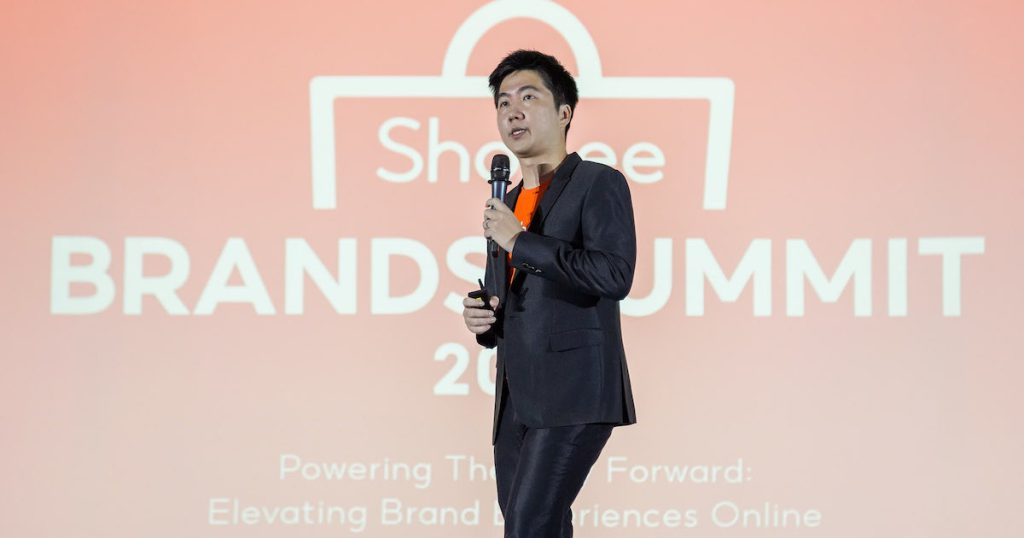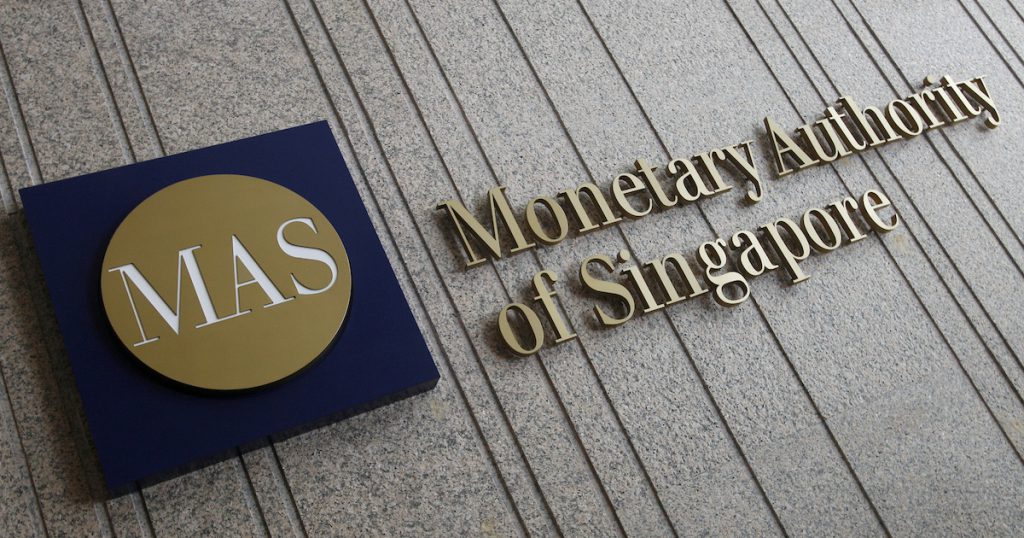Ahead of the curve: These 9 S’porean companies are betting big on NFTs

With Singapore’s emergence as a crypto hub, the country has been quick to adapt to new developments in blockchain technology. The most recent trend which local companies have been welcoming is that of NFTs.
Over the course of 2021, the NFT space has grown into a multi-billion dollar industry and by the looks of things, there’s a lot more to come.
Although they’ve mostly been used in digital art up till now, NFTs host an array of opportunities across industries, with potential use cases ranging from supply chain management to social media AR filters.
Although consumers still remain skeptical — with Singapore’s NFT adoption rate trailing well behind the global average — brands and startups are doing their best to secure an early mover’s advantage.
Here are nine companies which are steadily working to make NFTs a part of our everyday lives.
1. Love, Bonito
Homegrown fashion brand Love, Bonito teamed up with Singaporean visual artist Kristal Melson for its first ever NFT launch.
Titled Tiger Bloom, the artwork follows the brand’s theme of journeying with women. Melson created the design based on the idea of female empowerment, showcasing a balance of being both, feminine and fierce.

10 copies of Tiger Bloom were put up for sale on NFT marketplace OpenSea on January 14. They were all sold out in just over four hours, for a price of 0.08ETH (~S$331) each. A single user bought up five of the copies and has now relisted them for 2ETH each.
Love, Bonito has committed to donating a portion of the sales proceeds to charity. This launch collection was part of a Singapore Art Week project titled Creative Intersections: In The Year of the Tiger. Its inclusion serves as testament to how NFTs are establishing their place in Singapore’s art and retail scene.
2. mm2 Asia
One of Singapore’s largest entertainment companies, mm2 Asia, is making a foray into NFTs as well. Earlier this month, it announced plans to launch its very own NFT marketplace Metaviva.
Metaviva will operate across multiple blockchains — a functionality not seen in most popular NFT marketplaces such as OpenSea and Magic Eden. This might give the platform a slight edge coming into the game.
However, that’s not to say there won’t be any competition. Singapore-based platforms such as Rarible and Brytehall have already started minting NFTs and staking their claim on the local market.
On Metaviva, consumers will be able to buy a range of NFTs, including artworks, audio-visual footage, and merchandise. Actual props from movies and television shows will be up for sale too.
With a wide range of film and television IPs in its portfolio, mm2 Asia might be able to bring some of Southeast Asia’s most beloved entertainment content into the world of NFTs.
3. republiqe
Republiqe launched in 2020 as the world’s first digital-only fashion brand. The brand advocates for sustainability and ethical production in the fashion industry.
Republiqe’s digital garments serve as an alternative to buying clothes which might only get used once — to show off on social media or for a photo opportunity — and thrown away.

It was a no-brainer for the brand to jump on the NFT trend last year. In April and May 2021, Republiqe launched an exclusive collection of garments as NFTs. The winning bidders all sent in photos and had the garments e-tailored onto themselves.
Such one-of-one digital fashion pieces might become more prevalent as traditional brands start buying into the concept. Luxury fashion houses such as Gucci, Balenciaga, and Balmain were all found venturing into the metaverse in 2021.
4. Mighty Jaxx
Design studio Mighty Jaxx has worked with global brands such as Cartoon Network, Warner Brothers, DC Comics, and Looney Tunes to produce collectibles of their beloved characters.
The studio’s plans to enter the NFT space emerged all the way back in 2019, when it raised US$2.15 million for a ‘blockchain powered platform’. Since then, the platform has been named MightyVerse and raised a total of US$14.8 million.
MightyVerse will use NFT technology to verify the authenticity of physical collectibles — a market which is worth over US$500 billion today.

Those who visited Right Click + Save, Singapore’s first large-scale NFT exhibition, were able to see this technology in action. On display, was a figurine called Doge To The Moon: Boss Edition. It was up for sale for 500,000 Dogecoin (~US$125,000 at the time).
The figurine came embedded with cryptographic information. Upon scanning this, the owner would be able to access and trade NFT counterpart of the collectible. Through this, any future buyers can also verify that their purchase isn’t a fake.
5. Chain Debrief
It has been an eventful start to the year for Singapore-based media platform Chain Debrief.
On January 4, the publication announced that it had raised US$900,000 in its seed funding round. Using these funds, it plans to build products which help users understand the crypto space better.
One such product is Pulse, a dashboard which tracks the activities of decentralised apps across blockchains. Chain Debrief will offer exclusive access to Pulse to some of its users, and among those will be the holders of its upcoming NFT collection Enlightened Rats.

Featuring 888 unique NFTs, Enlightened Rats presents its take on the societal rat race wherein people are forced to compete for money, power, and status. The Chain Debrief team believes that crypto offers alternative paths through which individuals can exit this struggle and lead more fulfilling lives.
6. Alethea AI
A Singapore-based company which is already disrupting the NFT industry as we know it, Alethea AI is developing technology for the creation of intelligent NFTs (iNFTs).
These NFTs will be interactive and intelligent. Through AI training, they’ll be able to answer queries and engage in conversations with their owners.
Alethea AI has created its own metaverse, Noah’s Ark, as a place of inhabitance for iNFTs. The company released its first collection, titled ‘The Revenants’, last year. It comprises animations of 100 renowned historical personalities, pulled together by the idea that they may be reborn in the metaverse.

Subsequently, Alethea AI released personality pods — an essential component of iNFTs, which would grant The Revenants their own unique personality.
These pods act as the soul of each NFT, harbouring traits of emotion and intelligence. They’re designed to evolve over time, allowing iNFTs to perform increasingly complex functions such as writing poetry and playing games.
Users have the ability to train iNFTs themselves as well. They may engage in virtual debates with their Revenants, allowing them to build up their knowledge base and participate in more meaningful conversations.
7. Vividthree
Vividthree has been a leading player in Singapore’s visual FX scene for almost two decades now. The graphics company was early to take on virtual reality, and is doing the same with NFTs.
Almost a quarter of NFT sales in 2021 were linked to gaming. The top games generated millions in revenue and their most active users earned up to four figures a month, simply by playing. Through an investment in emerging NFT startup GammaR, Vividthree hopes to explore the use of NFT technology in this industry.
GammaR will leverage on the rise of blockchain games coming into 2022. The startup company plans to work with indie developers to integrate NFTs and blockchain technology into their games.
Vividthree believes that this will be a way to source gaming IPs and tap into new revenue streams beyond digital content production.
8. BuzzAR
Founded in 2018, BuzzAR was created to provide augmented reality solutions for retail and commerce businesses in Singapore. Since then, the brand has transitioned to being a metaverse startup.
Leveraging on blockchain technology, BuzzAR is bringing create-to-earn capabilities to its photo editing software, HappyToon, later this year. HappyToon uses AI technology to turn static image in animated avatars and memes. Soon, users will be able to turn these edits into NFTs using BuzzAR’s upcoming platform CryptoToon.
CryptoToon explores the application of crypto technology in social media — a space where it hasn’t yet found mass appeal. Through such a venture, users could potentially get paid for the type of content they usually post on platforms such as Instagram and Facebook.
9. Imaginary Ones
Imaginary Ones is an upcoming NFT project created by Clement Chia and David Lee. The pair are the co-founders of motion graphics company Offset SG.
Characterised by stunning animated visuals, Imaginary Ones aims to spread good vibes throughout the metaverse. Sneak peeks of the project have shown depictions of pop culture figures such as Batman and Daft Punk, with bodies made out of balloons.

Upon the launch of its Twitter account on January 12, the project gained 24,000 followers within the first 24 hours. Since then, the follower count has surpassed 60,000.
Even though it remains largely under wraps, several crypto influencers have included Imaginary Ones in their list of most promising NFT projects.
Much like Vividthree, this is yet another example of the crypto world presenting new opportunities for those in creative fields.
Why is all of this a big deal?
Through the efforts of these companies, NFTs are making their way into the real world. They’re no longer just an internet phenomenon.
In fact, more and more use cases are coming to light and NFTs are starting to disrupt existing industries as a result of them.
In due time, social media platforms could have their own sustainable economies and your Amazon packages might be trackable on the blockchain. Even if it isn’t readily apparent yet, NFTs are starting to gain legitimacy and they’re only going to become more prevalent in the future.
Shop and support the best homegrown brands on VP Label now:
[iframe_vp_product src="https://vulcanpost.com/label/embed-all/" id="iframe1"]
Featured Image Credit: Love, Bonito / Vulcan Post / BuzzAR via Medium / Chain Debrief
Also Read: From toasted bread .jpegs to multi-million dollar art sales: Recapping the NFT rise in S’pore
S’pore startup Haulio raises US$7M in Series A round – now hiring to support expansion in SEA
Homegrown startup Haulio announced yesterday (January 17) that it has raised US$7 million in a Series A funding round.
According to the company, the fresh injection of funds will be used to drive stronger haulage capabilities, enhance service quality, elevate product engineering and development, reinforce talent acquisition, and further scale its regional growth.
The funding round was led by Temasek unit Heliconia Capital, with participation from new and existing investors across the globe.
Among the new investors were Ondine Capital (China), Cornerstone Ventures (Taiwan), FuturePlay (South Korea), Newtown Partners via the Imperial Venture Fund (South Africa), and corporate executives from XA Network.
Existing investors including B7 Capital, ComfortDelGro, iSeed SEA, Iterative (United States) and PSA unboXed, also participated.
“Haulio has created a powerful digital platform that bridges the traditional haulage business offline-online thereby transforming the first-mile logistics operations,” said Derek Lau, Heliconia Capital.
“The founders’ deep understanding of this business should continue to help accelerate growth domestically and overseas. We look forward to working closely with the team and supporting them.”
Expects to triple revenue by end-2022
Founded in 2017, Haulio aims to evolve the logistics and supply chain industry by providing on-demand haulage services while optimising resources, ensuring both cost and time savings.
In April 2021, Haulio officially opened its first regional office in Bangkok, Thailand. In under nine months, its Thailand office has transacted over 500,000 containers and crossed seven figures in revenue.
Last June, Haulio also partnered with shipping and logistics global leader CMA CGM to move its containers on the major inland corridor of Laem Chabang and Lat Krabang, thus significantly increasing Haulio’s presence in the country.
Haulio is primed for further regional expansion to continue its digital aggregation of haulier network across Southeast Asia. To support its growth plans into markets such as Indonesia, Malaysia, Philippines, and Vietnam, Haulio said it is actively hiring top talent in strategic business functions.
“We started Haulio with a bold mission to empower the lives of millions of haulier drivers in Southeast Asia and become the key platform of growth for them through our technology and network effect,” said Alvia Ea, co-founder and CEO of Haulio.
“The complex and fragmented nature of our business continues to be a challenge especially when container haulage has been a vertical that often gets left behind. This investment will accelerate our regional growth and the transition of haulage standards from offline to online, as we remain steadfast in our vision to haul all containers in and out of Southeast Asia through our platform.”
Haulio has also expanded its offerings to include embedded financing and leasing solutions as it strives to be a key technology partner for the traditional haulier market segment.
In 2021, Haulio partnered with fintech players such as Funding Societies and Aspire to offer faster pay-out and supply chain financing, as well as with ComfortDelGro and Goldbell to offer leasing of prime mover trucks.
To date, it has transacted more than two million containers, with over half of the transactions completed in 2021 alone. Haulio expects to triple their revenue numbers by the end of the year as the global supply chain recovers.
Featured Image Credit: Haulio
Also Read: These 2 S’pore Millennials Started Up A ‘Grab For Hauliers’ – Lets B2B Customers Set The Prices
Shopee COO outlines the company’s roadmap in S’pore and its e-commerce strategy for 2022

Homegrown e-commerce giant Shopee is focusing on growing its customer base in non-metropolitan cities and enhancing its platform for its customers and merchants, said Chief Operating Officer (COO) Terence Pang during its Shopee Brands Summit 2022 last Thursday (January 13).
While brands such as Samsung, Adidas and Reckitt were at the bedazzled event — the second edition of its kind — to collect their awards for a range of accomplishments achieved on the platform, Terence took the stage to share the company’s strategies and roadmap for the year ahead.
Although the company is dubbed the top e-commerce platform in Southeast Asia and Taiwan, he still sees room for growth.
He added that e-commerce makes up nine per cent of total retail share in the region, which is a far cry from the 18 to 40 per cent in China and US.
Positive outlook for e-commerce despite Covid-19, impending GST
When I first joined e-commerce in 2012, we used a lot of Facebook and Google ads to attract consumers onto our platform and hope that they convert. Now, consumers proactively go onto the platform to search for goods.
– Terence Pang, Shopee COO
In an email response, Terence told Vulcan Post that “the pandemic cultivated more digital-first habits amongst consumers, including turning to e-commerce for necessities, which are likely to remain even as we move into the new normal.”
According to Shopee, its platform has become the first touchpoint for consumers who are looking to buy a product or get a deal, with search volume for brand names on Shopee Mall increasing two-fold between 2019 and 2020.
With this growing trend, the e-commerce platform plans to continue work with partners like Facebook and Google to “assist brands in driving traffic from multiple channels to their Shopee stores.”
This includes integrating Facebook ads on its Seller Centre, allowing merchants to purchase ads on the social media platform directly, it announced.

When asked if the impending Goods and Services Tax (GST) on imported goods and services would impact Shopee’s sales, Terence did not comment in specific but shared the company “will continue to work closely with the Singapore government to support the growth of the e-commerce landscape in Singapore.”
During Budget 2021, Deputy Prime Minister and Finance Minister Heng Swee Keat had announced that GST will be imposed on all imported goods from 2023, including low-value goods.
Aims to be “as integrated as possible” in consumers’ lifestyles

During its brand summit, Terence also announced that Shopee plans to focus its target on consumers outside of large cities.
He highlighted that Shopee Premium — a dedicated feature for premium branded items — accounted for more than half of its orders outside tier-1 metropolitan cities and saw eight times growth in traffic.
For Shopee, this group of customers outside tier-1 cities will be “crucial” in the next two to three years.
As e-commerce has become more integrated into consumer lifestyles, shoppers have also become familiar with the schedule of mega shopping events and started to look forward to shopping for the best deals during monthly double-digit campaigns such as 9.9, 11.11, 12.12. To cater to this demand, we are continually enhancing the shopper and seller experience across the board.
– Terence Pang, Shopee COO
To further engage customers, Shopee is continually enhancing its consumer and merchant experiences and has no plans to stop doing so in 2022, said Terence.
As part of its engagement, the company has announced plans to introduce a new campaign called 3.15 Consumer Day, held on March 15, which will be its first mega shopping event of the year.
He also highlighted during his keynote on Thursday that Shopeefood — its food delivery service in Indonesia, Malaysia and Thailand — was one of the company’s initiatives to continually engage consumers as part of their lifestyles.
“It’s not just the food delivery business that we’re interested in, but how do I engage and find more ways to feature in and be a part of my consumer’s lifestyle? That’s what we’re going after,” said Terence.
We must consider what the consumer would remember and be as integrated as possible in their lifestyle.
– Terence Pang, Shopee COO
What’s next for Shopee?
When asked about the company’s plans to extend its ‘Buy Now, Pay Later’ (BNPL) scheme SPayLater, Terence said that they are “already offering BNPL in some of [its] markets”.
Shopee’s SPayLater is currently available in Indonesia and Thailand. In Singapore, BNPL has been poignant with companies such as hoolah and Atome. Grab also introduced its own BNPL scheme, Grab PayLater, in Singapore in 2019.
For the year ahead, Shopee plans to further enhance platform features to engage consumers, such as improving recommendations for livestream content and its AR-enabled makeup try-on tool Shopee BeautyCam.
It will also be integrating membership programmes for brands on Shopee Mall, as well as launch four new Shopee Premium campaigns for premium brands throughout the year.
Merchants will also be able to purchase display ads on Shopee’s homepage banner and will have additional access to shopper insights through its new customer intelligence dashboard.
In 2022, it also has plans to launch a new sampling channel, allowing consumers to buy samples in exchange for store vouchers on their next purchase. Shopee said brands that participated in the pilot during its 12.12 sale last year recruited up to 90 per cent of its new buyers.
Featured Image Credit: Shopee
Also Read: Shopee is now equal to Alibaba’s entire international e-commerce, and about to outgrow it
Tesla opens retail store at Millenia Walk, offers test drives along East Coast scenic waterfront

Tesla Singapore opened its first dedicated retail store in Southeast Asia at Millenia Walk on Jan 15th (Sat).
The store is an addition to Tesla’s V3 Superchargers which were first opened at Millenia Walk last Sept.
Prospective Tesla buyers can get to experience the Model 3 car version, often known as Tesla’s smaller, simpler, more affordable electric car at Millenia Walk, with test drives along East Coast Parkway’s scenic waterfront.

Keen sales of Tesla EVs in 2021
According to the Land Transport Authority (LTA), Tesla car ownership in Singapore skyrocketed last year, from about 30 cars for Jan to June to almost 900 cars in the second half of the year.
Tesla was the best-selling electric vehicle (EV) in Singapore since it entered the local market in July 2021, according to LTA statistics for Sept last year. Overall, it ranked the sixth best-selling car brand in the country in the same period.
Tesla sold a total of 314 cars in Sept 2021, which is twice the number of cars sold as compared to Aug 2021.
National EV push
The entry of Tesla into the Singapore’s market was marked by years of uncertainties and difficult relationships, but it appears that the brand is now taking off amid the government’s plans to phase out internal combustion engine (ICE) cars by 2040.

Tesla currently has two Supercharger Stations in Singapore. Other than the charging station at Millenia Walk, the second one is located at Orchard Central.
The Tesla V3 Supercharger, which is exclusive for Tesla owners, is said to shorten EVs’ charging time to just 15 minutes, as compared to normal chargers which typically take several hours for a full charge.
Featured Image Credit: Pontiac Land Group
Also Read: Tesla sets up 3 EV charging points at Millenia Walk, its second Supercharger station in S’pore
M’sians confess their worst revenge spending mistakes, and the pitfalls you should avoid

[This is a sponsored article with Grab.]
Proper financial planning sounds easy, only spend what you can, right? While that may have been true before the pandemic, staying cooped up for nearly two years has had an effect on all of our spending habits.
According to reports, instances of revenge spending among young adults are on the rise. This new type of spending is attributed to people who splurge excessively on things they used to enjoy and spending uncharacteristically on new experiences that they’ve put off before.
Because hindsight is 20/20 and we want to help you avoid this problem, I spoke to my colleagues about their worst revenge spends this past year in hopes that you can avoid some of our mistakes.
Marcus, Content Director
During MCO1.0 I took up cooking for the first time and really enjoyed it. I continued cooking and managed to save a lot of money on dining out. When MCO2.0 was announced, I’ll admit I got a little lazy, but still, I persevered and cooked dinner and lunch for every meal for my family.
When the MCO2.0 was finally lifted in August I’d had enough of cooking and ordered my meals constantly. On a particularly lazy month in November, my transactions for meals alone hit over RM1,000!
Needless to say, I immediately dusted off my spending journal, forcefully picked up my wok and started cooking again.

Sarah, Managing Director
I spent RM500 on rollerblades—and I don’t even like exercising! I bought it during the pandemic because I thought, “Well, I can’t go out to exercise at the gym, I’ll just rollerblade around my carpark.”
How many times did I actually use them? Three times. And now they’re back in the box.
Also, I fell down and hit my hand really hard and I got really painful elbow aches for almost two months. I should have known I’m too old (and lazy) for this workout.
Anyone looking to buy a pair of preloved rollerblades?

Sade, Managing Editor
So this was around 2020 when I wasn’t going out a lot and I was saving on travel costs (petrol, toll, parking, etc.). At the time, I was playing a lot more games because if I couldn’t live a real life, I could at least live a virtual life.
Specifically, I started getting into Genshin Impact and I played it on mobile at first but I wanted an upgrade so obviously I needed a gaming laptop. Because I was already so invested in the game, in the span of one week I made quite an impulsive decision to buy a gaming laptop.
I just asked some tech expert friends for recommendations—I didn’t even do my own research—and they mentioned a model for RM3,800 that was good, so I bought it.
Normally, I would do lots of research and make sure I was getting a good price and bargain, but at that time I thought, if it makes me happy, why not?
It’s definitely not how I would normally spend pre-pandemic, and now, during the post-pandemic, I don’t think I’d be so lenient with my money anymore. That period between 2020 to mid-2021 was definitely an exception when it came to my spending.

What could they have done differently?
We’re all victims of our impulses sometimes, so it’s good to know how you can avoid costly financial decisions. According to this budgeting hack, you should put impulse buys on a time out.
This means, if you’re in a physical store, you walk around a bit more before you purchase that item. If you’re shopping online, leave the item in the cart for a week or two. If you find that it still sparks joy, go ahead and purchase it.
Another useful budgeting hack is to count the hours it would take for you to buy an item. For example, the fully spec’d iPhone 13 Pro Max will cost you RM7,599. If you earn RM3,000 a month, that’s two and half months of work, or 450 hours of work. When thinking about it this way, is it really worth the hours?
Finally, as most Vulcan Post staffers are pretty frugal and these three stories were the best I could find, I found out that Rikco, our Business Development Executive, also made a big purchase recently but he managed to spend lavishly but in a manageable way.
Save now, pay later
Rikco recently purchased a pair of Apple AirPods Pro worth RM849 for only RM199.75 upfront using PayLater by Grab leaving him with more cash in hand for emergencies.
“I usually like to think for a while before buying things, like for this AirPods for example, I thought about it for a while and since I was eligible to use PayLater, I decided to use that and pay. I secured an RM50 discount by using PayLater too,” Rikco revealed.

With PayLater, you can also lump together smaller items such as food, groceries, and utilities into a bill that you can split into four-monthly instalments. If you’d rather pay it in one payment, you can too.

To help you stay on top of your finances, the app will also show you an itemised view of your repayments periods and amounts so you can plan your budget better.
Getting started with Grab PayLater
In order to utilise the service, you’ll need to be at least a Silver-tier member (accumulate at least 200 GrabReward Points) and have made three transactions on the app in the recent month.
Besides food, e-hailing rides, and groceries, you can also purchase items from Grab’s partnering merchants such as Lilit, Zalora, All IT Hypermarket (like Rikco did), and more. The full list of merchants can be found within the app.

PayLater automatically deducts funds in the beginning of the next month from your GrabPay Wallet, so you don’t have to worry about late payments as long as you have enough money in your Wallet.
Plus, when making your first repayment using PayLater, you’ll also receive GrabRewards Points that can be used to offset future transactions.
-//-
Planning your finances properly in 2022 has become even more crucial, especially with the onset of newer COVID variants, recent floods, and reintroduction of gatherings for festive celebrations.
As mentioned before, the best way to keep your coffers in check is to always be on top of your spending.
BNPL services like PayLater offer one way to keep your expenses in check, but like any service, it should be used with discretion. Rack up too many incremental payments and you’ll pay for it later.
Also Read: 2022 is here, your business could lose out if you don’t become data-capable soon
MAS: Crypto providers in S’pore “should not” advertise in public areas or engage third parties

The Monetary Authority of Singapore (MAS) issued yesterday (Jan 17) new guidelines on Digital Payment Tokens (DPTs), commonly known as cryptocurrency, in which service providers are not allowed to promote their services to the general public in Singapore.
They “should not” engage in marketing or advertising of DPT services:
- in public areas in Singapore such as through advertisements on public transport, public transport venues, public websites, social media platforms, broadcast and print media, or provision of physical ATMs; or
- through the engagement of third parties, such as social media influencers, to promote DPT services to the general public in Singapore.
DPT service providers can only market or advertise on their own corporate websites, mobile applications or official social media accounts.
DPT services include the buying or selling of DPTs, or facilitating the exchange of DPTs.
According to MAS, the definition of “DPT services” will be expanded to include the transfer of DPTs, provision of custodian wallet services for DPTs, and facilitating the exchange of DPTs without possession of moneys or DPTs by the DPT service provider, when the amendments to the Payment Services Act (PS Act) take effect.
DPT service providers include payment institutions, banks and other financial institutions, as well as applicants under the Act.
Such ads could encourage consumers to trade on impulse
MAS observed that some DPT service providers have been actively promoting their services through online and physical advertisements or through the provision of physical automated teller machines (ATM) in public areas. This could encourage consumers to trade DPTs on impulse, without fully understanding the attendant risks.
It has consistently warned that trading DPTs is highly risky and not suitable for the general public, as the prices of DPTs are subject to sharp speculative swings.
MAS strongly encourages the development of blockchain technology and innovative application of crypto tokens in value-adding use cases. But the trading of cryptocurrencies is highly risky and not suitable for the general public.
DPT service providers should therefore not portray the trading of DPTs in a manner that trivialises the high risks of trading in DPTs, nor engage in marketing activities that target the general public.
– Loo Siew Yee, MAS’ Assistant Managing Director (Policy, Payments and Financial Crime)
For now, the phrasing “should not” in MAS’ new guidelines is very vague and does not firmly illustrate if it’s a legal offence if such providers act otherwise. If so, what would be the legal repercussions?
Regardless, I think MAS is taking the same stance as the whole Covid-19 situation. At the peak of the outbreak, Minister Lawrence Wong, co-chair of the Covid-19 Multi-Ministry Taskforce, had encouraged Singaporeans to refrain from visiting other households.
He did not outrightly say it’s a crime to do so, but by saying this, he’s hoping that Singaporeans will understand that it’s ill-advised to do so and not carry out the act.
After all, this is a mere guideline and not a ruling. As such, it is very likely that the DPT service providers are only encouraged to not advertise or market their services, and it will not be illegal if they commit it.
Shop and support the best homegrown brands on VP Label now:
[iframe_vp_product src="https://vulcanpost.com/label/embed-all/" id="iframe1"]
Featured Image Credit: Edgar Su via Reuters
Also Read: Bitcoin as the new-age cash: Should S’pore accept cryptocurrency as a major payment method?